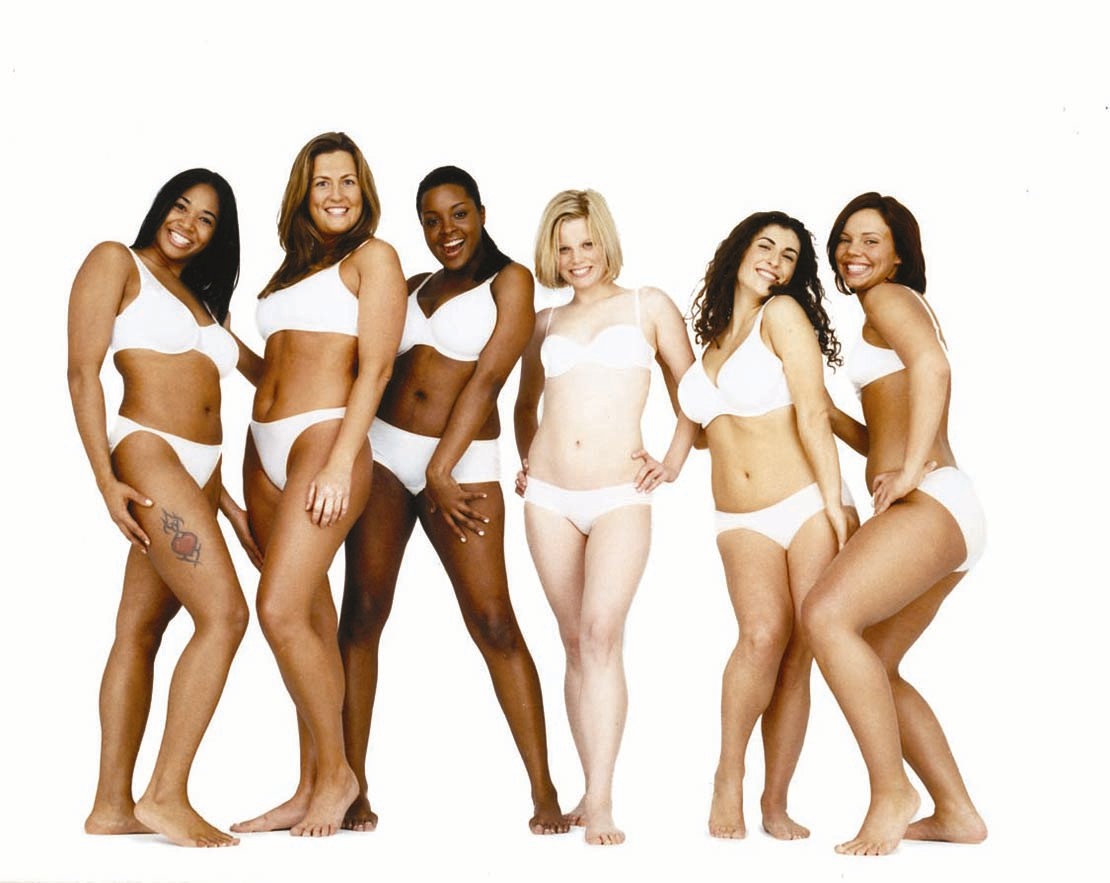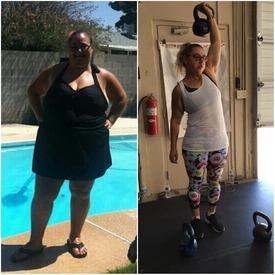I Do Not Want to be Thin
Replies
-
I used to be your weight OP, and besides wanting to be healthy , I also wanted to be thin! I've always loved myself but love myself much more as a thin person. Call it vain, whatever. I'm just being honest. I love being thin and worked really hard to get to be this weight.0
-
Soooo, I am mistaken to take the results of that study? All overweight is bad in your opinion?
I agreed with the OP so far as my goal is not "thin" but healthy.
The judgement about thin people being obsessed or wrong I could do without. We all have different goals. Working to thin is also a worthy goal.
I am miffed that my goal is considered somehow inferior or unhealthy when it's not!
I've never seen someone claim that wanting to simply lose weight and become healthier is inferior or unhealthy. I've been here for many years and have yet to see someone told they should aim to be thin or that their goal isn't good enough.
I do see people warn others that their methods are unhealthy or won't get them the results they are looking for, but never saying someone should lose more weight (unless the person asked for other opinions).0 -
PikaKnight wrote: »Well...okay then. I didn't realizing pointing out a common/well known flaw with the BMI system meant that your goals were inferior and that it meant I was saying things I didn't say.
I understand the BMI system is flawed, but how do you know that those flaws are the reason for the results? It is just as likely that being slightly overweight has health benefits.0 -
I didn't want to be thin
 I wanted to be healthy when I started - but I also hoped to lose enough weight to get down to at least a size 16 to get out of the plus sizes. - well I ended up passing that goal -- I had never actually been a slim fit adult before (started gaining weight as a teenager) so I am enjoying it and I ended up slim (and a size 4)... go figure... but it wasn't my main reason for losing weight, my health was... 0
I wanted to be healthy when I started - but I also hoped to lose enough weight to get down to at least a size 16 to get out of the plus sizes. - well I ended up passing that goal -- I had never actually been a slim fit adult before (started gaining weight as a teenager) so I am enjoying it and I ended up slim (and a size 4)... go figure... but it wasn't my main reason for losing weight, my health was... 0 -
PikaKnight wrote: »Well...okay then. I didn't realizing pointing out a common/well known flaw with the BMI system meant that your goals were inferior and that it meant I was saying things I didn't say.
I understand the BMI system is flawed, but how do you know that those flaws are the reason for the results? It is just as likely that being slightly overweight has health benefits.
Well, as more emphasis starts being put on body fat % over BMI (to the point even insurance companies are beginning to adopt it as well), then maybe a new study will come out in regards to what you are saying.
But either way, no one said anything about it being inferior,etc. No sense getting riled up over things no one said or just because someone pointed something out.0 -
My ideal weight is actually still classed as 'overweight'. I wasn't even fat when I was that weight, I just had massive boobs. But I was a size UK 10/12. I would be happy being back at size 12. I have no intention of ever being a size 8. I'm not even sure my body can be that thin anyway.0
-
I do want to be thin, and strong. I look better and feel better 40 lbs lighter.
This reminds me of that song by Meghan Trainor, All About That Bass. With respect, OP, though I do like the idea of a positive body image and the focus on healthy weight loss, I cannot get on board with this bizarre notion that wanting to be “thin” is bad. To quote the song:
I'm bringing booty back
Go ahead and tell them skinny *kitten* Hey
No, I'm just playing I know you think you're fat,
But I'm here to tell you that,
Every inch of you is perfect from the bottom to the top
People who are in “good” shape (say their ideal BMI range) don’t necessarily think they’re fat so that they starve themselves. I have no idea why the assumption is that “skinny” people are unhealthy. Lots of people work damn hard to be “skinny”, and IMO anyone who puts in the effort to be healthier deserves respect, regardless of where they are in that journey. I see no reason to rank goals and put down someone who wants to be “thin”. If that’s what motivates someone, as long as they’re healthy about it, it’s great.0 -
FlabFighter86 wrote: »My ideal weight is actually still classed as 'overweight'. I wasn't even fat when I was that weight, I just had massive boobs. But I was a size UK 10/12. I would be happy being back at size 12. I have no intention of ever being a size 8. I'm not even sure my body can be that thin anyway.
I'm sure your body could be a size 8 but it's fine if you don't want to be a size 8.0 -
PikaKnight wrote: »Well, I want to point out that BMI can be flawed. People can be included in a study that shows them at a BMI of being overweight but it turns out that when you review their body fat %, it shows a whole different story.
So what is the "whole different story"?
0 -
PikaKnight wrote: »Well, I want to point out that BMI can be flawed. People can be included in a study that shows them at a BMI of being overweight but it turns out that when you review their body fat %, it shows a whole different story.
So what is the "whole different story"?
O.o
That if you go by weight alone, you may be missing out on those who fall into the overweight category that really aren't overweight?0 -
when i started this (ive lost 168 pounds) I just wanted to get back to my previous hot self ...it didnt really have much to do about health or being thin to be honest
im not sure how much thinner my body can get it seems to be interested in staying around the weight I am now and thats okay with me
I liked what you said OP & I advise you to get use to seeing lots of fat phobia on this website its pretty saturated with it -1
-1 -
I don't want to be thin.
I tell myself that smaller doesn't mean weak, but the idea of being smaller still scares me.
I equate weight loss in the healthy BMI range to be vanity weight loss. I know that isn't true, but that is my knee-jerk reaction.
I don't like the thin look. I prefer the athletic look, that sometimes comes with a higher BMI.
I don't want to be noticed. I like how being larger makes me invisible (an intriguing paradox).
I don't believe I will ever be attractive, irrespective of weight.
Losing weight in my face makes my facial assymetry more evident, and I prefer the generic look of my obese face to the ugliness of my current overweight face (and I can't see losing much more fat off my face at this point).
Losing weight is depressing. I don't feel at all like the people do in the commercials for weight loss products. I just feel like an insecure failure as the weight comes off.
I don't want people to honk at me as I walk down the street (as used to happen when I was lighter). I don't want attention from the opposite sex (I'm a little afraid of it).
I hate that my weight loss makes my boyfriend feel insecure.
Strangers are approaching me to ask how much weight I've lost (125 lbs), telling me my weight loss is heroic and amazing. People I know tell me I'm an inspiration. I'm afraid of this pressure. I don't know that I'll succeed at weight loss (get to goal weight of 140 lbs) I don't know if I'll be able to keep it off. My progress is visible, my failure will be impossible to hide.
I've essentially been told by my brother to stop losing weight, even though I am 6 lbs from a "healthy" BMI. This is the same brother who used to pressure me to lose weight. My weight loss is causing both my daughters to reflect on their own weight. My older daughter has repeatedly said she is worried I'm getting an eating disorder...
Weight loss just seems to make me sad and stressed.
I do want to be stronger.
I want to be the one who pushes harder, moves faster, and stays strong through a sparring match. I want to see if I can run 20 k straight (I did 12 k on Monday a bit by accident). I want to run faster. I want to be able to do a chin up. I want to be able to do good quality push ups. I just managed to be able to do 90 degree squats, I now want to be able to do them with weights, and to get in and out of them quickly. I want to do better quality situps more quickly. I want more flexibility. I want to feel confident carrying my daughters on my back. I want the energy to take care of my home and children. I want more muscles and less belly.
Being stronger makes me happy (sometimes jubilant).
I don't want to be thin, I do want to be strong. I think I will end up moving a little more towards both as part of the process...
Whatever the motivation, best wishes to everyone on the journey.0 -
FlabFighter86 wrote: »My ideal weight is actually still classed as 'overweight'. I wasn't even fat when I was that weight, I just had massive boobs. But I was a size UK 10/12. I would be happy being back at size 12. I have no intention of ever being a size 8. I'm not even sure my body can be that thin anyway.
I'm sure your body could be a size 8 but it's fine if you don't want to be a size 8.
It really couldn't. If I had lost any more weight, I would literally be a stick with boobs. We're talking barbie doll figure here. And no, I really don't want to be a size 8.0 -
@PikaKnight No studies, huh? You are assuming that the healthiest people are within a certain body fat ratio. But you don't know.
And to be clear, I'm not talking obesity here which comes with known health risks. I'm talking "overweight".0 -
FlabFighter86 wrote: »FlabFighter86 wrote: »My ideal weight is actually still classed as 'overweight'. I wasn't even fat when I was that weight, I just had massive boobs. But I was a size UK 10/12. I would be happy being back at size 12. I have no intention of ever being a size 8. I'm not even sure my body can be that thin anyway.
I'm sure your body could be a size 8 but it's fine if you don't want to be a size 8.
It really couldn't. If I had lost any more weight, I would literally be a stick with boobs. We're talking barbie doll figure here. And no, I really don't want to be a size 8.
I highly doubt that.0 -
@PikaKnight No studies, huh? You are assuming that the healthiest people are within a certain body fat ratio. But you don't know.
And to be clear, I'm not talking obesity here which comes with known health risks. I'm talking "overweight".
What? No I'm not. You are totally making some crazy assumptions there.
I simply pointed out that there was a possibility that since the study focuses solely on the scale number, that they may have included those with lower body fat %...when taking that into account, the person actually isn't "overweight".
This was about the chart. Why the hell would I need to post up studies based on pointing out a possible flaw in the study based on the common flaw on BMI on a whole?
And please point out where I stated anything about body fat % and health/mortality ratio too, while you're at it.0 -
I'm sure your body could be a size 8 but it's fine if you don't want to be a size 8.[/quote]
It really couldn't. If I had lost any more weight, I would literally be a stick with boobs. We're talking barbie doll figure here. And no, I really don't want to be a size 8.[/quote]
I highly doubt that. [/quote]
Do not understand why people are arguing with me about my own body...0 -
There's a difference between being obese and overweight. The chart I provided showed better outcomes for those who are overweight over ideal weight.
BMI is a load of crap. The chart you showed doesn't discriminate between body fat and lean mass. You can have a lot of lean mass (muscles) and be overweight by the BMI standard.
/fail0 -
FlabFighter86 wrote: »I'm sure your body could be a size 8 but it's fine if you don't want to be a size 8.
It really couldn't. If I had lost any more weight, I would literally be a stick with boobs. We're talking barbie doll figure here. And no, I really don't want to be a size 8.[/quote]
I highly doubt that. [/quote]
Do not understand why people are arguing with me about my own body...[/quote]
If I may butt in, I also used to say that I can’t be lower than a size 8 (US). I’d say I have big bones, and my hips are too wide. Now, being around size 4-6, I see that I was completely wrong. If you’re happy to be a size 8 is one thing, but saying that you can’t be smaller than that? That just makes no logical sense.0 -
FlabFighter86 wrote: »I'm sure your body could be a size 8 but it's fine if you don't want to be a size 8.
It really couldn't. If I had lost any more weight, I would literally be a stick with boobs. We're talking barbie doll figure here. And no, I really don't want to be a size 8.
I highly doubt that. [/quote]
Do not understand why people are arguing with me about my own body...[/quote]
Because it just sounds like excuses.
0 -
Excuses for what? I just said that I would be happy being a size 12. I also said that I don't want to be a size 8. I have previously been a size 10, and people told me not to lose more weight because I wouldn't look right. I agreed with them.
So, I don't understand why one person can't just decide to be a size 12 and not a size 8. Do we all have to be aiming for a size 8 here now?0 -
Why not take people at their word about their own bodies? A woman's rib cage may be too wide for a size 8. Is she making excuses?
My weight loss goal, considering my age and history, is considered realistic between me and my dietitian. I have lost enough weight to be mobile, which is what I really wanted.0 -
Why not take people at their word about their own bodies? A woman's rib cage may be too wide for a size 8. Is she making excuses?
My weight loss goal, considering my age and history, is considered realistic between me and my dietitian. I have lost enough weight to be mobile, which is what I really wanted.
Huh? I've never heard the rib cage thing before. That's a new one.0 -
Soooo, I am mistaken to take the results of that study? All overweight is bad in your opinion?
I agreed with the OP so far as my goal is not "thin" but healthy.
The judgement about thin people being obsessed or wrong I could do without. We all have different goals. Working to thin is also a worthy goal.
I am miffed that my goal is considered somehow inferior or unhealthy when it's not!
I've never seen someone claim that wanting to simply lose weight and become healthier is inferior or unhealthy. I've been here for many years and have yet to see someone told they should aim to be thin or that their goal isn't good enough.
I do see people warn others that their methods are unhealthy or won't get them the results they are looking for, but never saying someone should lose more weight (unless the person asked for other opinions).
It was in the first response and all the 'high five's responding to that - many people in this thread have said, if you're fat then you're sick and if you're thin then you're healthy. Are you really going to make me (or someone not slacking at work) go back and copy paste them all?0 -
jennifershoo wrote: »There's a difference between being obese and overweight. The chart I provided showed better outcomes for those who are overweight over ideal weight.
BMI is a load of crap. The chart you showed doesn't discriminate between body fat and lean mass. You can have a lot of lean mass (muscles) and be overweight by the BMI standard.
/fail
I don't recall anyone saying that BMI is a load of crap anywhere upthread when everyone was in 100% agreement that thin = healthy and fat = sick.0 -
FlabFighter86 wrote: »Excuses for what? I just said that I would be happy being a size 12. I also said that I don't want to be a size 8. I have previously been a size 10, and people told me not to lose more weight because I wouldn't look right. I agreed with them.
So, I don't understand why one person can't just decide to be a size 12 and not a size 8. Do we all have to be aiming for a size 8 here now?
I don’t know what “wouldn’t look right” means. It could mean “if you get any thinner I'll start feeling insecure about my own weight”. Just saying.
But anyway, whatever makes you happy! I personally wouldn’t trust “people”, is all.0 -

0 -
Has this thread now gone from "rethink your goals if you want to be thin" to "rethink your goals if you don't want to be thin"? Because it kind of feels like it's going that way.0
-
Soooo, I am mistaken to take the results of that study? All overweight is bad in your opinion?
I agreed with the OP so far as my goal is not "thin" but healthy.
The judgement about thin people being obsessed or wrong I could do without. We all have different goals. Working to thin is also a worthy goal.
I am miffed that my goal is considered somehow inferior or unhealthy when it's not!
I've never seen someone claim that wanting to simply lose weight and become healthier is inferior or unhealthy. I've been here for many years and have yet to see someone told they should aim to be thin or that their goal isn't good enough.
I do see people warn others that their methods are unhealthy or won't get them the results they are looking for, but never saying someone should lose more weight (unless the person asked for other opinions).
It was in the first response and all the 'high five's responding to that - many people in this thread have said, if you're fat then you're sick and if you're thin then you're healthy. Are you really going to make me (or someone not slacking at work) go back and copy paste them all?
I guess I skipped those. I saw a lot of people saying that it's hard to know until you get close. My bad. I stated multiple times that just aiming to be healthier is great.0
This discussion has been closed.
Categories
- All Categories
- 1.4M Health, Wellness and Goals
- 398.1K Introduce Yourself
- 44.7K Getting Started
- 261K Health and Weight Loss
- 176.4K Food and Nutrition
- 47.7K Recipes
- 233K Fitness and Exercise
- 462 Sleep, Mindfulness and Overall Wellness
- 6.5K Goal: Maintaining Weight
- 8.7K Goal: Gaining Weight and Body Building
- 153.5K Motivation and Support
- 8.4K Challenges
- 1.4K Debate Club
- 96.5K Chit-Chat
- 2.6K Fun and Games
- 4.8K MyFitnessPal Information
- 12 News and Announcements
- 21 MyFitnessPal Academy
- 1.5K Feature Suggestions and Ideas
- 3.2K MyFitnessPal Tech Support Questions











